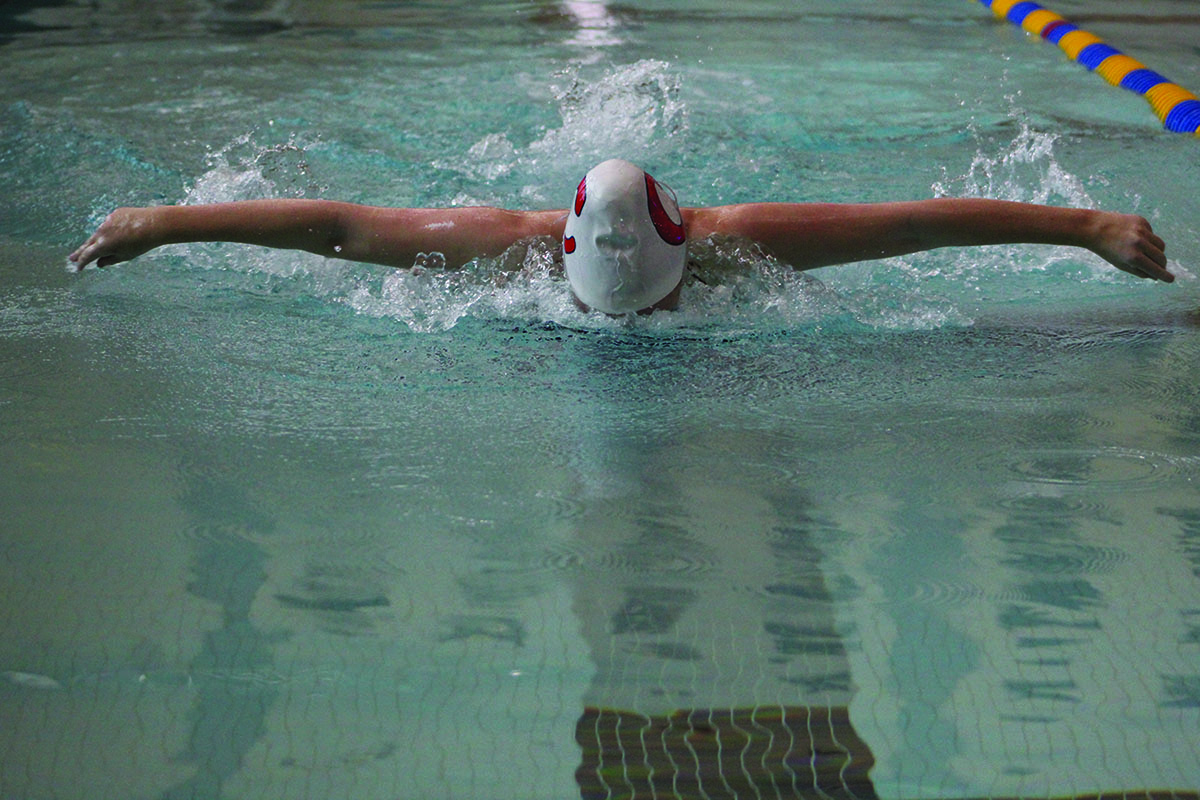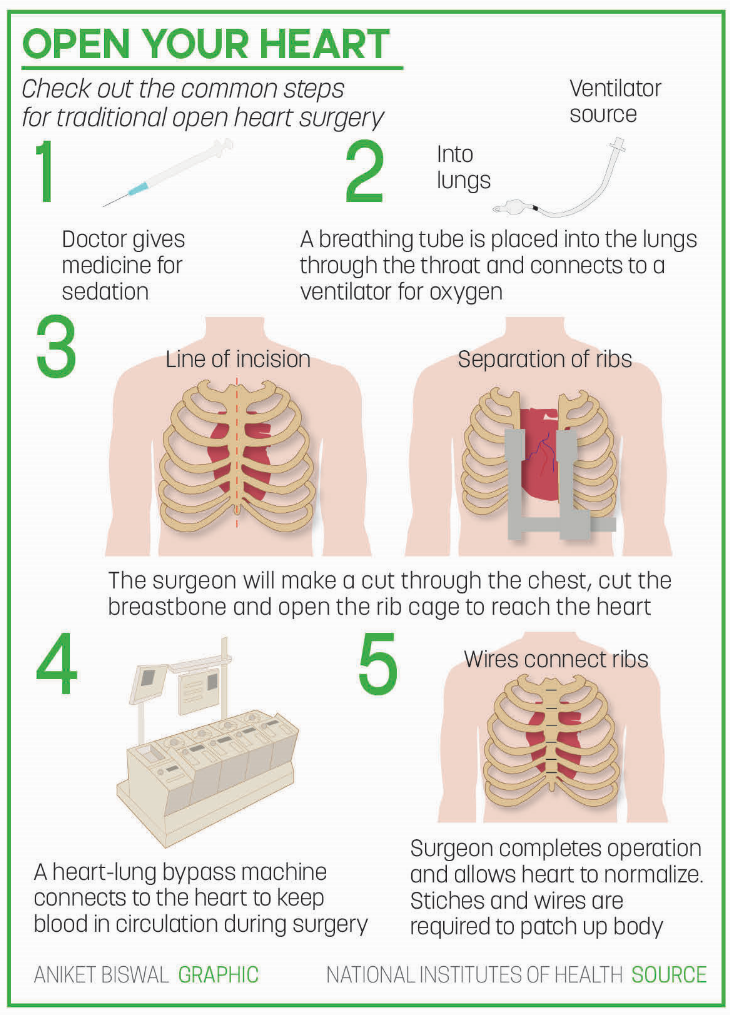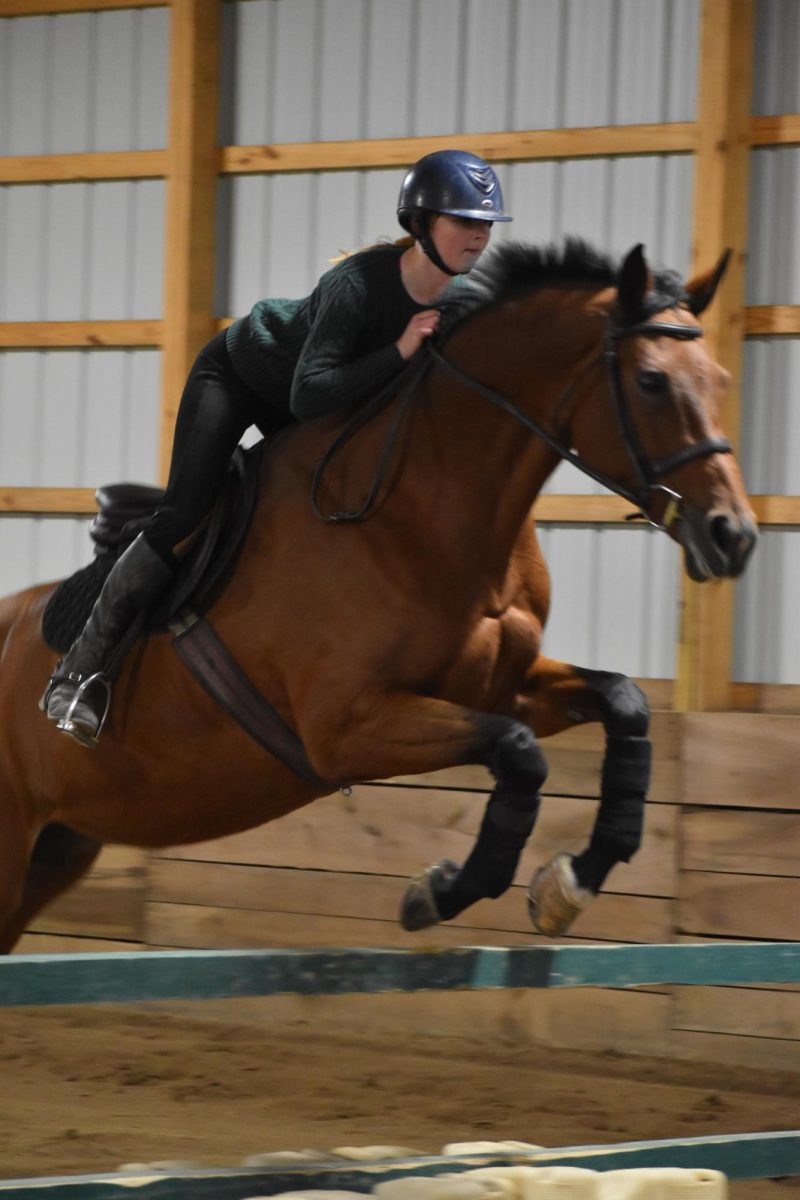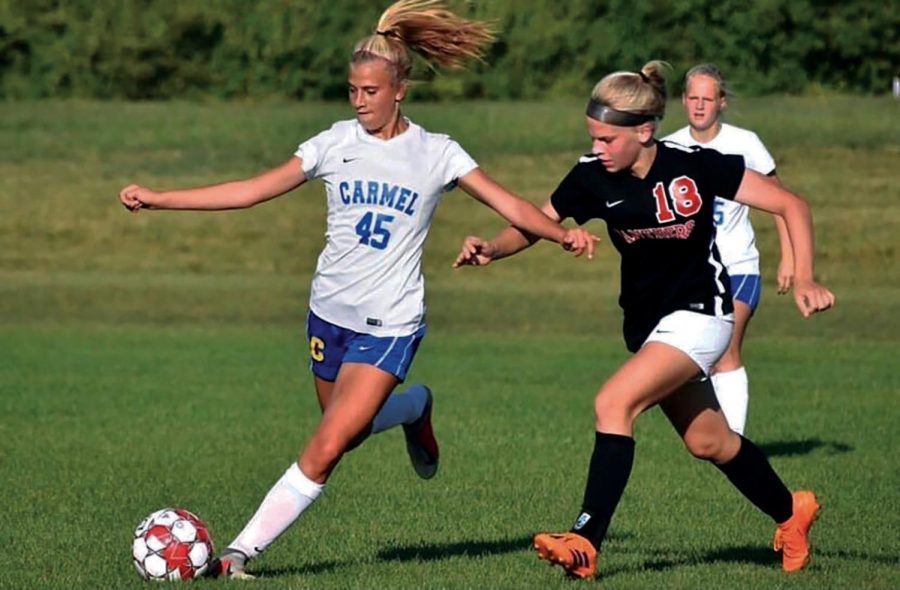Swimmer and senior Brooke Zurcher knew something was wrong when she was training with the swim team. Her heart was beating unusually fast during workouts. When she consulted a cardiologist, her cardiologist diagnosed her with supraventricular tachycardia (SVT).
“My heart rate will go up too high. When your heart beats too fast, your body isn’t getting enough oxygenated blood so it basically means I get fatigued very easily and I could possibly pass out. Luckily, I have not yet,” Zurcher said about the effects of SVT.
February is American Heart Month, a month dedicated to promoting activities that promote cardiovascular health. While Zurcher is an athlete who regularly exercises her cardiovascular system, she still had to undergo heart surgery.
Zurcher said, “When (the cardiologists) got inside my heart, they did a catheter ablation. So they basically (inserted a tube) through my leg and went up to my heart and they diagnosed me with atrial fibrillation.”
Zurcher said she was not anxious prior to the surgery because of the surgery’s low mortality rate.
Zurcher said, “I actually was really calm because these types of procedures are extremely low-risk. There’s almost no chance of me dying, which is awesome. It’s minimally invasive so I’m not going to have a big scar or anything.”
Fortunately for Zurcher, the procedure was minimally invasive and she was able to resume training soon after the operation.

“Since it was minimally invasive and they went through my leg, I just needed a Band-Aid on it for about a week or so just to make sure it didn’t get infected,” Zurcher said. “After about a week, I went back to practice and I was basically back to normal. Nothing really that special.”
However, some athletes have had to undergo more serious surgeries on other parts of their body and miss out on playing for extended periods of time. Maddie Quigley, soccer player and junior, said she has undergone multiple surgeries on her hips and as a result has missed out on entire soccer seasons.
“Missing soccer is definitely very draining. I’ve played soccer since I could walk, so not playing was very different. It’s very hard to watch people around you play and not be able to,” Quigley said.
To aid in her recovery, Quigley has gone through physical therapy to rebuild strength in her hips both before and after the surgery.
Quigley said, “Physical therapy consisted of lots of hip exercise, lots of strengthening, not only the hip, but around the hip and then eventually progressing to where you could run and do different, more advanced exercises.”
Athletics trainers work closely with athletes to help them recover from these surgeries. Athletics trainer Derek White said he takes athletes through a sequence of activities to help them build up strength after surgery.
White said via email, “When an athlete is recovering from surgery we use a functional progression. We start by reducing pain and swelling through manual therapy such as massage and compression. Once pain and swelling are reduced we move to increase range of motion through stretching and movement exercises. Once we believe the athlete is ready we then work to increase an athlete’s strength through exercises with weights or bands.”
While going through physical therapy and recovering from her surgery, Quigley has begun returning to the field and doing some practice. However, her activity is still greatly restricted.
Quigley said, “I go out to the fields on a good day with my hips. When my hips feel a little bit better, I’ll try and play, but usually after practicing on a field for an hour, I will be icing for the next week and will be in an insane amount of pain, even after the surgeries. So I go when I can go.”
Similarly, Zurcher is still limited in her training and sometimes needs to take breaks during workouts.
Zurcher said, “I have not been able to train to the extent that I used to be able to. Whenever I get to a point where it goes up too high and I start to see spots during swimming, I just have to stop and take a breath and stop exercising for five minutes and wait for my heart rate to go back down.”
Quigley said the people around her have helped her greatly during her recovery process.
Quigley said, “I’ve received a lot (of support). Mostly my friends and parents are what kept me so positive throughout my surgeries. Surgeries are very draining, so having teammates and coaches and friends and family to support you through it made it a lot easier for sure.”
Overall, Quigley said her experience with surgeries has taught her to appreciate many of the smaller and subtler aspects of life.
Quigley said, “Being on bed rest and being on crutches, it’s such a little thing but it makes you appreciate all the little things like being able to hold things by yourself or hold your backpack. The little things are very effective and you wouldn’t expect them to be.”
To check out more details regarding heart surgery, click here: Heart Surgery | NHLBI, NIH
To view a story about how to stay healthy during American Heart Month, click here: American Heart Month Toolkits 2021 | cdc.gov



































![British royalty are American celebrities [opinion]](https://hilite.org/wp-content/uploads/2024/03/Screenshot-2024-03-24-1.44.57-PM.png)



















![Chelsea Meng on her instagram-run bracelet shop [Biz Buzz]](https://hilite.org/wp-content/uploads/2024/04/IMG_2446-1200x838.jpg)
![Review: Quiet on Set: The Dark Side of Kids TV is the long awaited exposé of pedophilia within the children’s entertainment industry [MUSE]](https://hilite.org/wp-content/uploads/2024/04/unnamed.jpg)
![Review: “The Iron Claw” cannot get enough praise [MUSE]](https://hilite.org/wp-content/uploads/2024/04/unnamed.png)
![Review: “The Bear” sets an unbelievably high bar for future comedy shows [MUSE]](https://hilite.org/wp-content/uploads/2024/03/unnamed.png)
![Review: “Mysterious Lotus Casebook” is an amazing historical Chinese drama [MUSE]](https://hilite.org/wp-content/uploads/2024/03/0.webp)
![Review in Print: Maripaz Villar brings a delightfully unique style to the world of WEBTOON [MUSE]](https://hilite.org/wp-content/uploads/2023/12/maripazcover-1200x960.jpg)
![Review: “The Sword of Kaigen” is a masterpiece [MUSE]](https://hilite.org/wp-content/uploads/2023/11/Screenshot-2023-11-26-201051.png)
![Review: Gateron Oil Kings, great linear switches, okay price [MUSE]](https://hilite.org/wp-content/uploads/2023/11/Screenshot-2023-11-26-200553.png)
![Review: “A Haunting in Venice” is a significant improvement from other Agatha Christie adaptations [MUSE]](https://hilite.org/wp-content/uploads/2023/11/e7ee2938a6d422669771bce6d8088521.jpg)
![Review: A Thanksgiving story from elementary school, still just as interesting [MUSE]](https://hilite.org/wp-content/uploads/2023/11/Screenshot-2023-11-26-195514-987x1200.png)
![Review: When I Fly Towards You, cute, uplifting youth drama [MUSE]](https://hilite.org/wp-content/uploads/2023/09/When-I-Fly-Towards-You-Chinese-drama.png)
![Postcards from Muse: Hawaii Travel Diary [MUSE]](https://hilite.org/wp-content/uploads/2023/09/My-project-1-1200x1200.jpg)
![Review: Ladybug & Cat Noir: The Movie, departure from original show [MUSE]](https://hilite.org/wp-content/uploads/2023/09/Ladybug__Cat_Noir_-_The_Movie_poster.jpg)
![Review in Print: Hidden Love is the cute, uplifting drama everyone needs [MUSE]](https://hilite.org/wp-content/uploads/2023/09/hiddenlovecover-e1693597208225-1030x1200.png)
![Review in Print: Heartstopper is the heartwarming queer romance we all need [MUSE]](https://hilite.org/wp-content/uploads/2023/08/museheartstoppercover-1200x654.png)






















![Review: Ladybug & Cat Noir: The Movie, departure from original show [MUSE]](https://hilite.org/wp-content/uploads/2023/09/Ladybug__Cat_Noir_-_The_Movie_poster-221x300.jpg)

![Review: Next in Fashion season two survives changes, becomes a valuable pop culture artifact [MUSE]](https://hilite.org/wp-content/uploads/2023/03/Screen-Shot-2023-03-09-at-11.05.05-AM-300x214.png)
![Review: Is The Stormlight Archive worth it? [MUSE]](https://hilite.org/wp-content/uploads/2023/10/unnamed-1-184x300.png)


